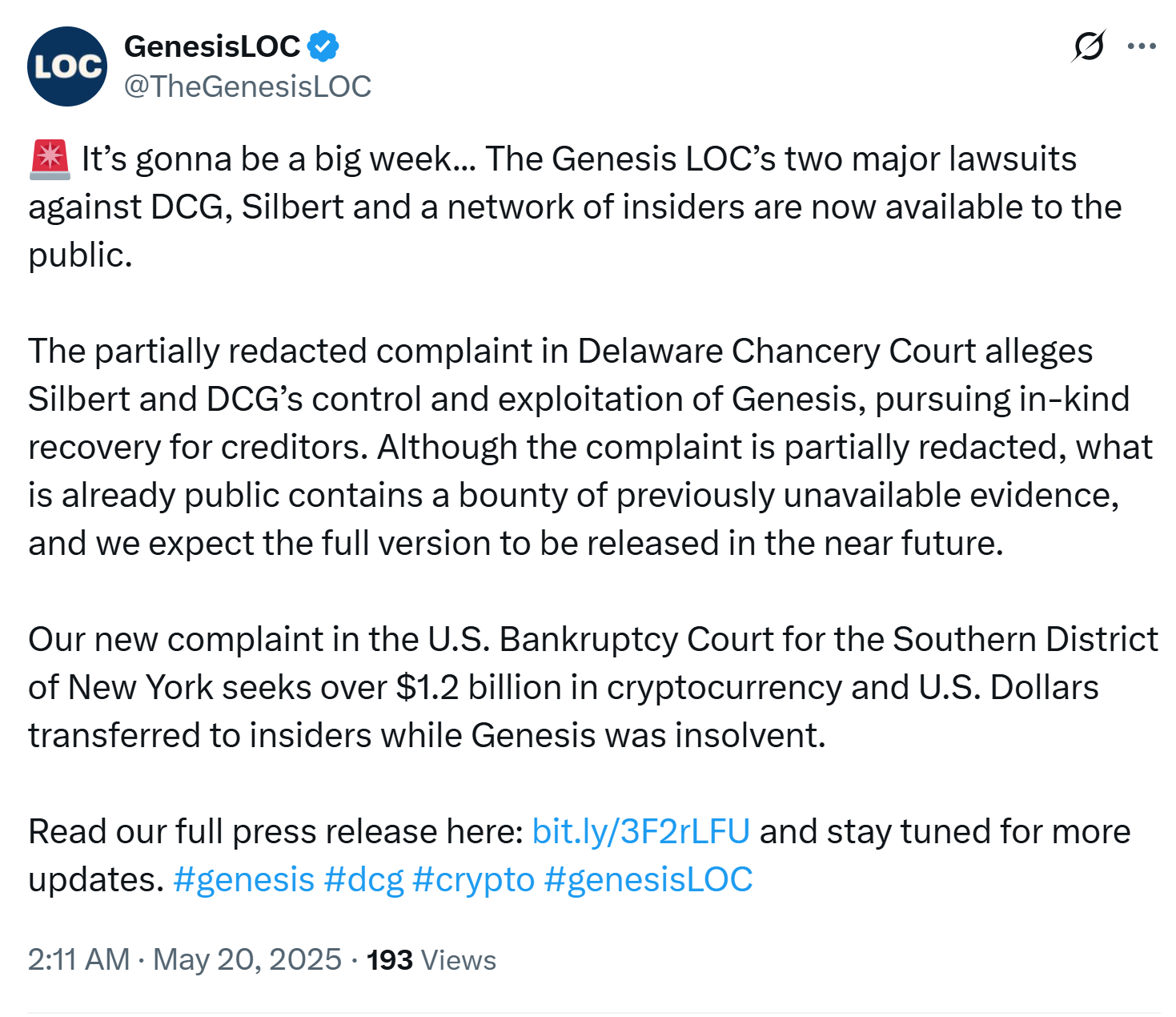
Genesis Files Lawsuits Accusing DCG and Silbert of Fraudulent Practices
In a dramatic turn of events, Genesis, the embattled crypto lender that filed for bankruptcy in early 2023, has launched a pair of lawsuits against its parent company, Digital Currency Group (DCG), and its CEO, Barry Silbert. The lawsuits, filed in Delaware and New York, allege a shocking pattern of fraud, reckless mismanagement, and self-serving actions that allegedly siphoned billions of dollars from Genesis, ultimately leading to its downfall.
The Delaware lawsuit, filed by Genesis‘s court-appointed Litigation Oversight Committee (LOC), alleges that DCG treated Genesis as a corporate ATM, exploiting it for its own benefit. The complaint paints a picture of DCG draining funds through dubious loans, concealed transfers, and questionable investment decisions, all while presenting a misleading facade of financial health. The LOC claims that over $2.1 billion in digital assets were funneled away from Genesis, even as the company teetered on the brink of collapse.

The lawsuits further allege that Silbert and other DCG insiders disregarded basic risk controls and pushed Genesis into risky lending practices, ultimately benefiting DCG‘s flagship investment arm, Grayscale Investments. Specifically, the complaint alleges that DCG withdrew a staggering $1.2 billion from Genesis before the bankruptcy, leaving the lender exposed.
Allegations of Mismanagement and Conflicts of Interest
The complaint accuses DCG of manipulating financial records and manipulating Genesis‘s books to conceal its true financial position. It also claims that Genesis lacked proper board oversight and independent decision-making, with key decisions designed to enrich DCG at the expense of depositors.
One particularly troubling allegation is that DCG forced Genesis to accept illiquid Grayscale Bitcoin Trust (GBTC) shares as collateral, preventing Genesis from selling them, creating significant valuation risks. This forced reliance on GBTC, which faced regulatory hurdles and market fluctuations, further weakened Genesis‘s financial footing.
A Pattern of Misconduct Leading to Bankruptcy
The New York lawsuit filed by Genesis‘s LOC further alleges that DCG and its affiliates withdrew over $1.2 billion in US dollars and cryptocurrencies in the year preceding the bankruptcy. The LOC argues that these withdrawals were strategically timed to coincide with major market events, such as the collapses of Terra-Luna, Three Arrows Capital, and FTX, when Genesis was already facing financial distress. These actions, the LOC alleges, benefited DCG insiders while leaving retail and institutional creditors in the lurch.
These lawsuits represent a dramatic escalation in the ongoing legal battle surrounding Genesis‘s collapse. They also shine a harsh spotlight on the intricate web of relationships within the crypto industry and the potential for conflicts of interest to lead to devastating consequences for investors.
Potential Implications and Next Steps
The success of Genesis‘s lawsuits will hinge on proving the allegations of fraud and mismanagement. The court will need to determine whether DCG‘s actions were indeed fraudulent and whether Silbert bears personal responsibility for the alleged misconduct. The outcome of these lawsuits could have significant implications for the crypto industry as a whole, setting precedents for investor protection and corporate governance in a rapidly evolving space.
The legal battle is likely to be protracted and complex, with DCG and Silbert expected to vigorously defend themselves against the accusations. The lawsuits are likely to reveal more details about Genesis‘s financial dealings and the inner workings of the crypto industry, potentially shedding light on broader issues of risk management and regulatory oversight.


